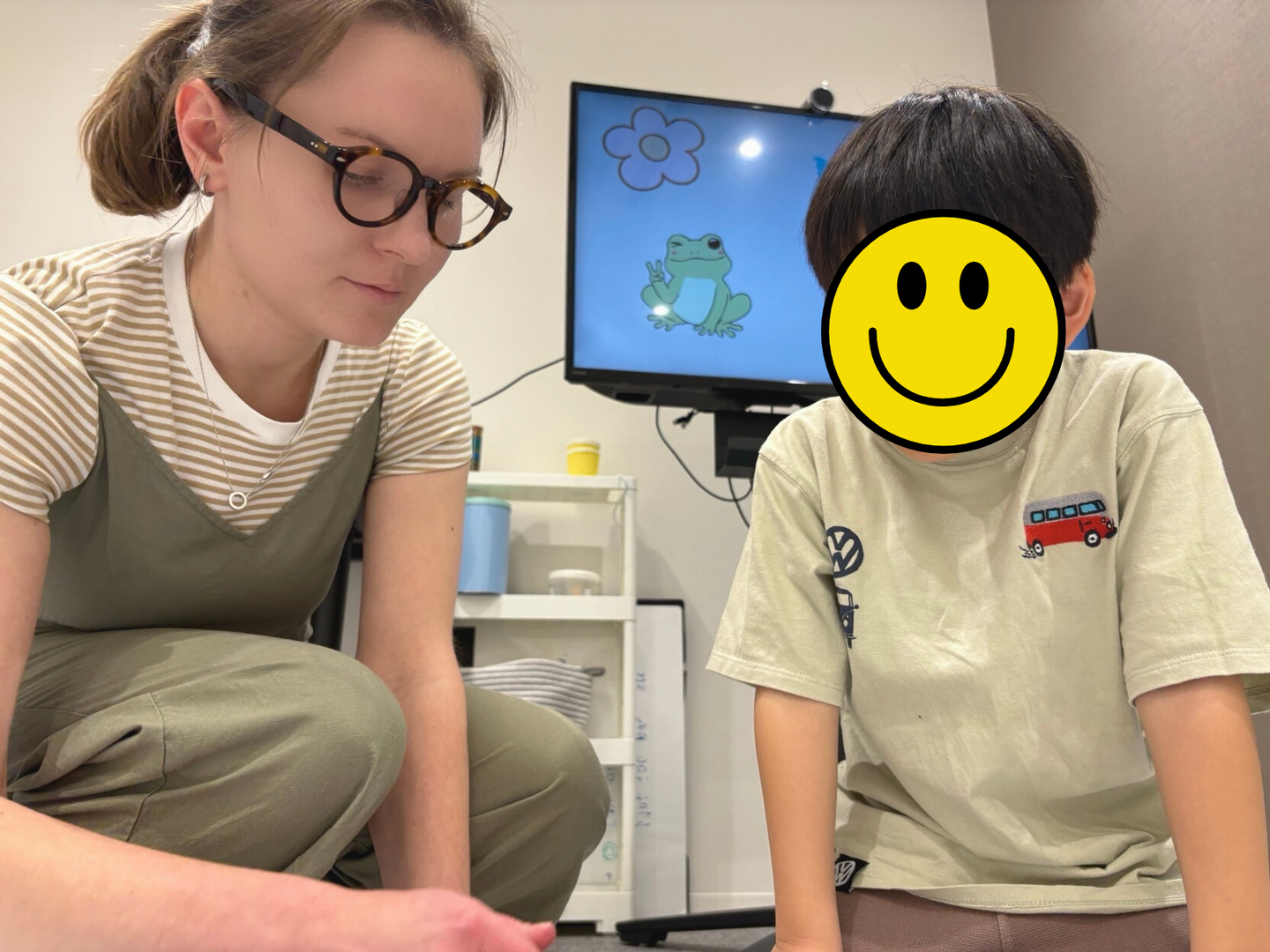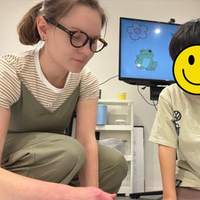“In a world where you can be anything, be yourself!”

Why did I become a teacher?
When I was a kid, I used to study English, but my teacher was very strict, and I couldn’t understand anything. I struggled a lot, but then my parents found a tutor who completely changed my experience. My tutor made the lessons fun and enjoyable—I was inspired, motivated to study, and actually looked forward to the next lesson. That’s when my journey with English really began. In high school, I realized that learning isn’t just about the subject itself—it’s about the teacher and how they explain and share the information. Kids spend so much time at school, and often when you ask them, “How was school?” the answer is “boring” or “difficult.” I know I can’t change the whole world, but I realized I can make a difference in some kids’ lives, just like my tutor did for me, and show them that learning English can be fun and enjoyable.
Teaching for me is...
I love what I do, and I do what I love. I have been teaching for around 10 years, working with students aged 5 to 50, and I’ve loved every moment of it. Every age group is different, and every experience is unique—and that’s what makes teaching so exciting. Teaching is life because with every group, with every student, you live a story. You feel the full range of emotions—frustration, joy, curiosity, surprise. Students come to class tired, hungry, or upset, and it’s my job to meet them where they are, support them, and guide them to learn something meaningful.
Kids teach you patience and the art of simplicity. Even simple concepts can be challenging to explain, and that’s when you realize how much creativity and energy teaching requires. Lessons with children are full of laughter, play, and fun, because learning through games and activities is the most powerful way for them. Kids show their true emotions—they don’t hide how they feel—and that honesty is a gift.
Teenagers open a whole new world. English becomes a tool, a key to explore opportunities, express themselves, and connect with the wider world. At this stage, encouragement matters more than ever. Teenagers often close up, but with a little patience and support, a kind word, or a simple “Yes, you can. Try again,” they can open up and discover their own strengths.
Adults bring their lives into the classroom. Teaching them is a two-way journey—you share your knowledge and experience, and you learn about theirs. Adults sometimes also long for the joy of being a child again, celebrating small victories and enjoying playful, meaningful moments in class.
Every student, every group, every lesson fills my teaching life with emotions, memories, and stories. Teaching is not just a job for me—it’s who I am. It’s life, it’s connection, and it’s the joy of helping others grow:)
Why Everest?
I love working at Everest because I believe language is more than just grammar—it’s a tool for communication and connection. Here, we don’t just focus on finishing exercises; we focus on helping kids use English in real-life situations. Our main goal is speaking, so students gain confidence, learn how to ask questions, respond naturally, and express their own ideas.What I enjoy most is seeing students connect with people from different countries, with different backgrounds, hobbies, and perspectives. Watching them communicate, share, and have fun while learning makes every lesson meaningful. This approach makes my job exciting every day, and it’s why I truly love what I do at Everest.
Roadblocks I come across
Teaching is rewarding, but it can also be emotionally tiring. Not every day brings fresh ideas, and sometimes it’s hard to come up with new, fun ways to make a lesson engaging. Even well-prepared lessons don’t always go as planned—they can take a completely different turn, which can feel frustrating. Another challenge is working with kids who are very tired after a long day at school. No matter how much energy or creativity you bring, sometimes all they want is rest, and it becomes difficult to get them involved. I see these as areas where I can continue to grow: learning how to adapt more flexibly when lessons don’t go as expected, finding strategies to re-energize tired students, and building a stronger “toolbox” of ideas to keep lessons engaging no matter the situation.
What Motivates Me
The students themselves motivate me. Seeing their progress—whether it’s a child confidently using a new word, a teenager opening up in English, or an adult enjoying small achievements—gives me energy and purpose. I’m motivated by the idea that English is not just a subject but a tool for connection. Knowing that I can help students communicate with people from different countries, backgrounds, and cultures inspires me. Challenges also motivate me. Even when lessons don’t go as planned or students are tired, these situations push me to be more creative, patient, and flexible. They remind me that teaching is not only about delivering knowledge, but also about building trust and finding ways to inspire. I’m also motivated by the chance to make learning fun. I love the idea that I can change a student’s perspective from “boring and difficult” to “fun and possible.”
Future Plans
Looking ahead, I want to continue growing as a teacher. For me, teaching has never been about standing still—there are always new methods, tools, and techniques to discover that can make lessons more engaging and effective. I see every class as an opportunity to learn something new, not just for my students but also for myself. What excites me most is the idea of inspiring students not only to study English but to truly enjoy the process of learning it. I want them to feel the same excitement I once felt with my own tutor—the motivation to keep learning, the confidence to try, and the joy of realizing they can express themselves in another language.
At Everest, I also want to give back by sharing ideas and supporting other teachers. Teaching can sometimes feel like a lonely job, but when teachers support and motivate each other, the whole environment becomes more positive and inspiring—for both us and our students.
In the long run, my goal is simple but meaningful: I want to be the kind of teacher who is remembered not just for grammar and vocabulary lessons, but for making a difference. A teacher who helped students believe in themselves, stay curious, and find joy in learning. If my students walk away with confidence and a love for English, then I know I’ve done my job well.


/assets/images/8794087/original/3e3b8699-8977-407c-babc-624a3d31cd07?1644307382)




/assets/images/8794087/original/3e3b8699-8977-407c-babc-624a3d31cd07?1644307382)

